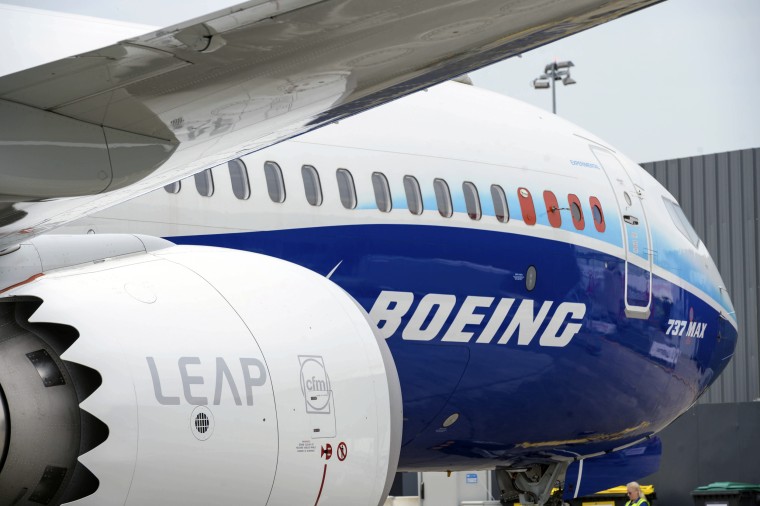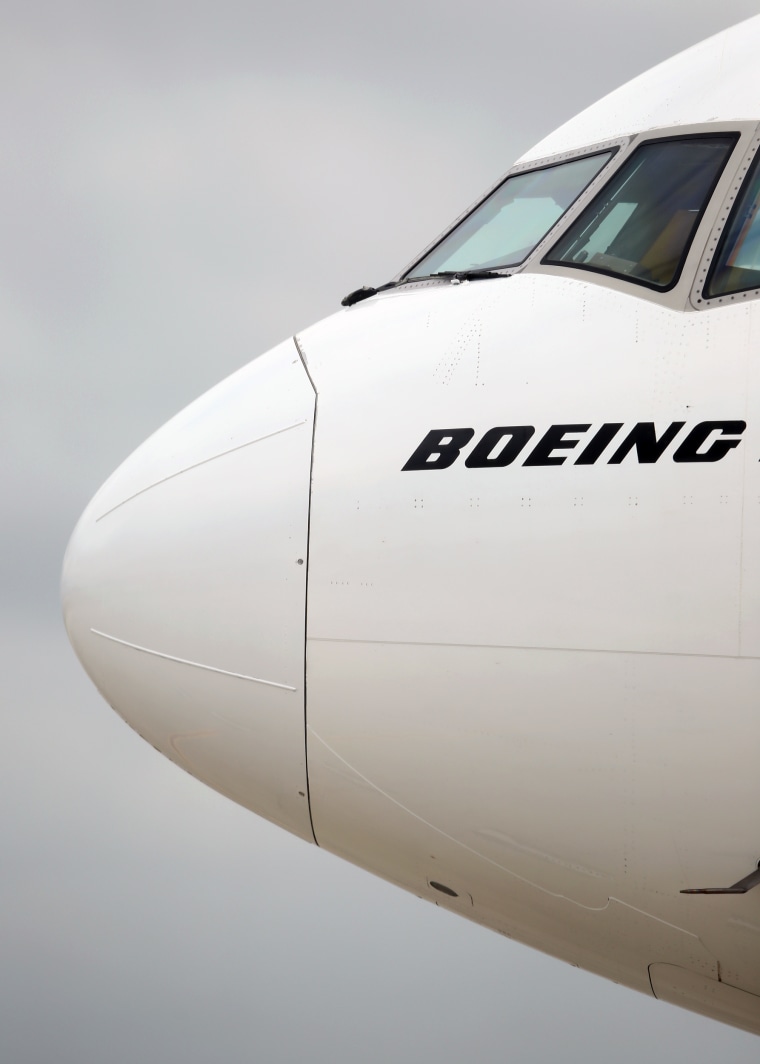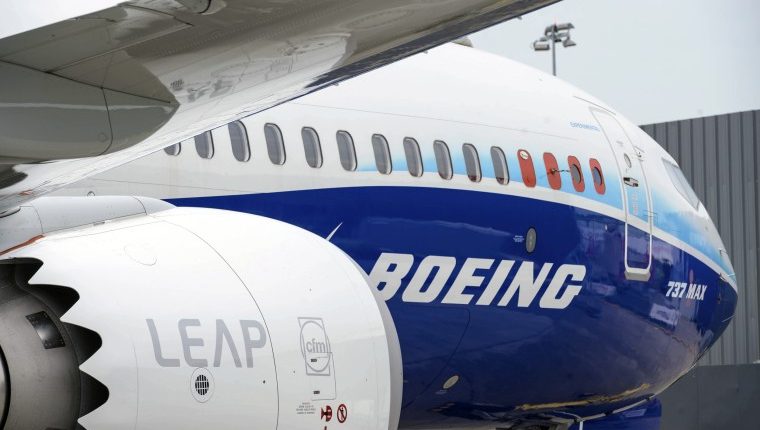The Federal Aviation Administration on Saturday said it will be temporarily grounding some Boeing 737 Max 9 airplanes used by U.S. airlines after a panel of an aircraft detached in midair during an Alaska Airlines flight.
After about 10 minutes of flight time, the plane, initially bound for California, made an emergency landing in Portland, Oregon.
“The FAA is requiring immediate inspections of certain Boeing 737 Max 9 planes before they can return to flight,” FAA Administrator Mike Whitaker said. He added that safety will continue guiding the agency’s decision-making as it assists the National Transportation Safety Board’s investigation into Friday’s incident, which occurred on an Alaska Airlines flight.
No one was seriously injured in the accident.
There have been other issues involving Boeing aircraft, some of which have ended tragically.

An engine cover detached on an Alaska Airlines flight
An Alaska Airlines flight was forced to make an emergency landing after an engine cover detached mid-flight in 2022.
“Part of the metal paneling that covers the engine, called the cowling, detached from the aircraft when it landed,” the airline said at the time.
No one was injured on the Boeing 737-900ER, headed from Seattle to San Diego.
A faulty engine control sensor forced an emergency landing
A Rossiya Airlines Boeing 777-300ER cargo plane made an emergency landing in Moscow during a 2021 flight from Hong Kong to Madrid due to a problem with the engine control sensor, the airline said at the time.
No one was injured and the aircraft were not suspended from flying.
Federal aviation agency Rosaviatsiya said at the time that Russian airlines operate those types of Boeing 777 planes, which are equipped with General Electric GE90-115B engines.
737 Max 8 crashes in Indonesia and Ethiopia kill 346 people
Perhaps the most infamous tragedies involving Boeing airplanes were in Indonesia in October 2018 and in Ethiopia in March 2019.
All 189 passengers and crew flying on a brand new Lion Air Boeing 737 Max 8 from Jakarta to Sumatra died after the plane crashed into the Java Sea just 13 minutes after takeoff.
Not even five months later, another new 737 Max 8 plane operated by Ethiopian Airlines crashed shortly after takeoff, killing all 157 passengers on board. The flight was headed from Addis Ababa en route to Nairobi, Kenya.
A 2020 U.S. House investigative report into the two incidents blamed Boeing and the FAA for “repeated and serious failures,” and called the crashes “a horrific culmination of a series of faulty technical assumptions by Boeing’s engineers, a lack of transparency on the part of Boeing’s management, and grossly insufficient oversight by the FAA.”

The committee’s report claimed Boeing made “extensive efforts to cut costs” and refused to slow its production of 737 Max aircraft, citing financial pressure.
The crashes led to the grounding of all 737 Max planes internationally.
Boeing said at the time that it learned “many hard lessons” and “made fundamental changes” following the crashes.
An engine failure left a woman dead
In 2018, a woman aboard a Southwest Airlines flight from LaGuardia Airport in New York to Dallas Love Field died after the left engine on the plane failed, damaging the aircraft’s main body and forcing an emergency landing at Philadelphia International Airport.
Passengers told NBC News that a piece of the engine crashed into the window, shattering it and depressurizing the plane. Then, the woman was partially sucked out of the broken window mid-flight. Passengers said they witnessed people pulling her back inside.
Multiple alarms blared on the Boeing 737-700 just 20 minutes after takeoff, former National Transportation Safety Board Chairman Robert Sumwalt said at the time. Crew members on board reported an engine fire and immediately prepared for an emergency landing.
The engine that malfunctioned, a General Electric CFM 56-7, is “a very, very reliable engine,” Gary Kelly, Southwest’s former chief executive, said at the time.
A Boeing 777 lost the cowling on its right engine
In 2018, the right engine of a United Boeing 777 lost its cowling — the engine’s removable covering — forcing an emergency landing while en route to Honolulu from San Francisco.
The plane eventually landed safely in Hawaii on time, the airline told NBC at the time.
A jet engine malfunction forced a Southwest plane to divert
An engine on a Southwest Boeing 737 heading from New Orleans to Orlando malfunctioned mid-flight and caused major damage to the plane.
The flight, which occurred in 2016, was forced to divert and land in Pensacola, Florida. Plenty of passengers feared they were under attack after hearing a loud boom, but the plane landed safely and all passengers and crew members were unharmed.
British Airlines pilots got sick as their cockpit was starved of air
Three pilots of a 2015 British Airways flight got sick after debris, including bubble wrap, insulation materials and wires, blocked airflow to the cockpit on a Boeing 777 plane.
The flight, en route to Seattle, was forced to turn back and make an emergency landing at London’s Heathrow Airport after the pilots reported “headache, nausea, light-headedness, a constant urge to take deep breaths and difficulty maintaining concentration,” according an Air Accident Investigation Branch report.
The pilots had to keep the door to the cockpit open and wear oxygen masks in order to safely land the plane.
The exact same plane was reported to have had airflow issues to the cockpit twice in the weeks leading up to the incident, but engineers believed the issue had been fixed, the report said.
A damaged windshield forced an emergency landing
A Boeing 777 was forced to make an emergency landing at Los Angeles International Airport after the windshield cracked in 2015.
The plane had just taken off from LAX and was headed to Brisbane when it was forced to turn back around. The aircraft landed safely.
Overheating batteries caused the grounding of Boeing 787 planes
In 2013, regulators approved a new and improved battery system for Boeing 787 Dreamliners after the aircraft had been grounded because the plane’s lithium-ion batteries kept overheating.
The redesign addressed more than 80 causes of fires, Boeing said at the time. The move allowed Boeing to make repairs to the fleet of 50 planes owned by eight international airlines.
Fuel leaks prompted inspection of Boeing 787 planes
The FAA in 2012 said it was requiring Boeing 787 Dreamliners to be inspected after fuel leaks linked to manufacturing flaws at Boeing plants were discovered.
The leaks were due to an improper assembly of couplings at the factories, the FAA said.
Earlier that same week, a 787 with 184 people aboard was forced to make an emergency landing in New Orleans after experiencing a mechanical problem on a flight from Houston to Newark.
Source: | This article originally belongs to Nbcnews.com









